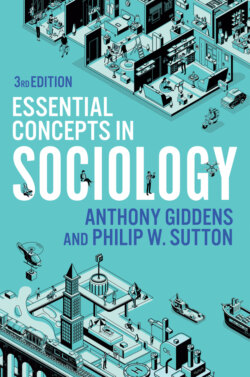Читать книгу Essential Concepts in Sociology - Anthony Giddens - Страница 25
Origins of the Concept
ОглавлениеThe development of sociology from its inception has been largely focused on the period of modernity as this emerged and developed in Western Europe and North America, later impacting on the rest of the world. Western modernization theory argued that all countries would develop economically, though at different rates and times. Marxist critics argued that ‘underdevelopment’ was a policy pursued by colonial regimes which systematically plundered resources and actively ‘underdeveloped’ the colonized regions and countries.
Since the 1980s, debates around the colonial period and its legacy have shifted from theories of economic underdevelopment to the broader concerns of postcolonialism. This is a growing intellectual movement that is highly critical of sociology’s Eurocentrism, theoretical sidelining of the significance of colonialism and a lack of scholarly voices from the Global South (Bhambra 2014a). Postcolonial ideas can be traced back to the early twentieth century, but the origins of the emerging postcolonial intellectual movement lie in the 1980s and 1990s.
Bhambra (2014b) argues that contemporary postcolonialism owes much to debates around the work of Homi Bhabha (1994) on alternative cultural traditions disrupting the Western narrative of modernity, Gayatri Spivak (1988) on the historical development of dominant discourses and Edward Said (1978) on power relations and knowledge production. Said’s (1978) work on the discourse of ‘orientalism’ is often cited as a foundational work of postcolonial theory.
Many Western academics in the nineteenth and early twentieth centuries discussed ‘the Orient’ or ‘the East’ in their studies of the Middle East, Africa and Asia, contrasting this with the Western Occident. Said argues that this contrast was hardly ever drawn in a neutral way. Instead, the Orient was exoticized and presented as the ‘other’ set against the normal and superior (Western) Occident. The persistence of this discourse was facilitated by the exclusion of scholarly accounts from academics based outside the West. Hence, the apparent cultural differences between East and West came to be seen as a key part of the explanation for Western global economic, industrial and military dominance. In sum, orientalism played a crucial ideological role in legitimizing many brutal colonial regimes.
